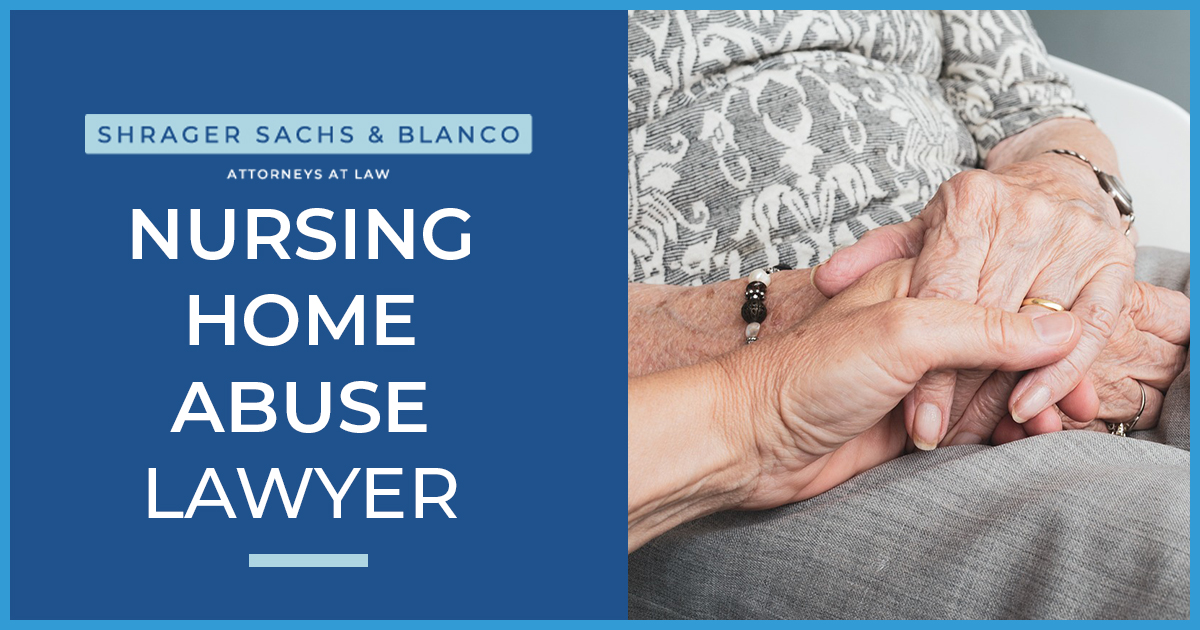Key Realities Every Lawyer Ought To Know Concerning Elder Abuse Regulations
Older abuse is an intricate problem that demands legal attention. Legal representatives have to realize the nuances of appropriate regulations, including state-specific statutes and federal mandates. Comprehending the kinds of abuse, reporting commitments, and available lawful solutions is vital for efficient campaigning for. As the maturing populace grows, so too does the need for lawful experts to be furnished with the best knowledge. The implications of this knowledge are extensive, causing important concerns about defense and justice.
Recognizing Senior Citizen Misuse: Interpretations and Kinds
Older misuse includes a range of damaging behaviors routed towards older grownups, often causing physical, emotional, or monetary damage (Nursing Home Abuse). This misuse can manifest in a number of forms, consisting of physical misuse, which involves causing physical injury, and emotional misuse, identified by emotional torment and control. Disregard, one more substantial kind, occurs when caregivers fail to provide essential treatment, bring about wear and tear in the senior's health and wellness or health. Financial exploitation involves the unapproved use an elder's properties or funds, commonly carried out by those in relied on placements. Additionally, sex-related misuse, although much less frequently reported, stands for a severe infraction of a senior's self-respect. Recognizing these definitions and kinds is essential for recognizing the indicators of elder misuse and making sure the security and civil liberties of older grownups. Recognition and education regarding these numerous forms can empower areas to intervene and sustain those in susceptible scenarios efficiently
Lawful Structure: Federal and State Regulation
While numerous kinds of elder abuse are identified, the lawful structure dealing with these concerns is vital for safeguarding older adults. At the federal level, laws such as the Elder Justice Act develop arrangements to protect against and respond to elder forget, exploitation, and misuse. This act provides financing for study, training, and sources aimed at enhancing the security of at risk senior citizens.
State legislations likewise play an essential role, as each state has its very own statutes specifying elder abuse and outlining enforcement devices. These legislations frequently incorporate an array of misuses, consisting of physical, psychological, economic, and neglect. Furthermore, some states have implemented certain elder misuse units within police to concentrate on these instances.
Together, government and state legislations develop a thorough structure created to combat senior abuse, guaranteeing that older adults obtain the defense and assistance they require in their neighborhoods.
Obligatory Coverage Demands for Specialists
Necessary coverage needs for specialists describe the commitments to report suspected senior abuse to the suitable authorities. Failing to conform with these commitments can result in considerable lawful consequences, consisting of penalties and potential civil obligation. Recognizing these needs is crucial for specialists working with vulnerable populations to ensure their safety and security.
Coverage Obligations Overview
How can experts guarantee the safety and security of vulnerable adults? One significant avenue is through understanding and adhering to compulsory coverage needs. Several jurisdictions impose lawful commitments on particular specialists-- such as healthcare workers, social employees, and police officials-- to report believed elder abuse. These legislations aim to secure vulnerable adults by ensuring that any signs of misuse or forget are quickly explored. Professionals must recognize the specific indicators of senior abuse, including physical, psychological, and economic exploitation. Furthermore, reporting need to be carried out in a timely way to assist in speedy treatment. By satisfying these reporting responsibilities, specialists play an essential duty in securing the wellness of senior people and promoting a society of liability and watchfulness against abuse.
Legal Effects for Non-Reporting
Failure to adhere to required coverage needs can result in significant legal consequences for specialists tasked with protecting susceptible grownups. Professionals such as doctor, social employees, and legislation enforcement officials are legally obligated to report thought instances of older misuse. Failing to do so may result in civil responsibilities, including lawsuits or penalties. In some jurisdictions, non-reporting can bring about criminal costs, potentially causing misdemeanor or felony convictions. In addition, specialists may encounter disciplinary actions from licensing boards, including suspension or revocation of their licenses. These legal effects emphasize the significance of sticking to reporting regulations, which are designed to secure vulnerable populations and assure that cases of older abuse are attended to without delay and appropriately.

Symptoms and signs of Senior Citizen Abuse
Identifying the symptoms and signs of older abuse is vital for safeguarding prone individuals. Older misuse can manifest in different kinds, including physical, psychological, financial, and forget. Physical signs might include unusual contusions, fractures, or indicators of restriction. Psychological misuse commonly presents as withdrawal, fearfulness, or sudden modifications in actions. Victims may show signs of anxiety, clinical depression, or confusion.
Financial abuse might be suggested by abrupt changes in financial condition or missing prized possessions, while neglect can be determined with inadequate health, lack of nutrition, or hazardous living conditions. It is very important to keep in mind that these indicators can overlap, and one indicator alone might not indicate misuse. Observing multiple symptoms in conjunction can offer a clearer image. Caretakers and relative should stay positive and vigilant in determining these indicators to assure the health of older grownups and promote prompt treatment when essential.
Lawful Treatments Readily Available for Targets
Targets of older abuse have a number of legal treatments readily available to them, offering avenues for justice and protection. These solutions consist of civil claims for damages, criminal prosecution options versus wrongdoers, and the possibility of getting safety orders and restrictions. Each choice serves to deal with the damage experienced by victims and to aid prevent further misuse.

Civil Suits for Damages
Older misuse sufferers often seek justice through civil claims, which offer a necessary lawful solution for those damaged by oversight or intentional misbehavior. These claims permit targets or their family members to sue for physical, emotional, or monetary harm endured due to the actions of caretakers, taking care of homes, or various other liable parties. Common claims in these instances include neglect, willful infliction of psychological distress, and breach of fiduciary responsibility. Sufferers can seek compensatory problems to cover medical expenses, useful link pain and suffering, and corrective problems targeted at discouraging future misconduct. Civil suits not only provide financial alleviation however also offer to hold abusers liable, therefore contributing to more comprehensive societal changes in the therapy of prone senior populations.
Prosecution Options
A substantial number of elder abuse cases might likewise bring about prosecution, providing one more avenue for justice past civil remedies. District attorneys can go after costs for different offenses, including attack, fraudulence, or forget, relying on the particular circumstances of the abuse. Prosecution offers not only to penalize wrongdoers but also to prevent more abuse and secure at risk individuals. The lawful standards for criminal situations vary from civil cases, typically calling for a higher problem of evidence, generally "beyond a practical doubt." Targets or their advocates may work together with regulation enforcement to report incidents, guaranteeing that the lawful system holds wrongdoers accountable. In general, criminal prosecution is a crucial tool in the fight against elder abuse, enhancing social norms versus such crimes.
Protective Orders and Restraints
When people encounter threats or harm due to elder abuse, safety orders and restrictions become important legal remedies to secure their safety and well-being. Safety orders, often issued by courts, offer to legitimately prohibit abusers from getting in touch with or coming close to victims, therefore providing immediate relief. These orders can differ in duration and might consist of particular stipulations tailored to the sufferer's requirements. Restrictions, on the various other hand, involve physical actions absorbed treatment facilities or in your home to stop additional injury, though they should adhere to lawful requirements to assure they do not infringe on the older's legal rights. In general, these legal mechanisms intend to equip victims, supplying them an organized method to look for security and security from ongoing misuse.
The Role of Guardianship in Protecting Senior Citizens
Guardianship plays a vital role in protecting the wellness of senior citizens, particularly when they are incapable to make informed choices regarding their care and funds. This legal arrangement assigns an accountable person or entity to supervise the individual and economic affairs of an incapacitated elderly. Guardianship is particularly vital in cases where seniors are vulnerable to abuse, exploitation, or neglect, as it gives a protective structure ensuring their needs and legal rights are focused on.
The responsibilities of a guardian include making healthcare choices, managing property, and making sure that the elderly's living conditions are supportive and risk-free. In addition, guardians are required to adhere to lawful criteria and report frequently to the court, advertising liability and openness. By assisting in oversight, guardianship offers as a crucial device to secure elders, cultivating their dignity and improving their lifestyle in possibly hazardous scenarios.
Resources for Legal Professionals and Campaigning For Groups
Accessibility to extensive sources is essential for lawyers and advocacy groups working to combat senior misuse and secure prone elders. Many organizations offer essential information, including the National Center on Senior Abuse, which offers research, training, and guidelines on elder abuse avoidance. Attorneys can gain from state-level agencies that offer details laws and guidelines pertaining to older security.
Additionally, several campaigning for groups, such as AARP and the Senior Justice Union, supply resources, legal tools, and networking chances. Online systems, like the Legal Solutions Corporation, give access to legal help sources for low-income seniors.
Continuing education and learning is crucial; as an outcome, webinars and workshops held by legal organizations can enhance expertise and abilities. Partnership with healthcare specialists and social workers is additionally crucial to create a multidisciplinary approach to attending to elder misuse. Utilizing these sources enables lawful specialists and campaigning for teams to successfully advocate for the legal rights and safety and security of the elderly populace.
Frequently Asked Inquiries
Exactly How Can Legal Representatives Remain Updated on Senior Citizen Abuse Regulation Modifications?
Lawyers can remain upgraded on older abuse legislation adjustments by registering for legal newsletters, attending pertinent seminars, joining specialist associations, and regularly assessing state and federal legal resources and updates significant to elder law.
What Are Common Defenses Against Elder Abuse Allegations?
Typical defenses versus senior misuse allegations include demonstrating absence of intent, verifying consensual activities, offering evidence of mental incapacity in the accuser, and revealing adherence to caregiving requirements. The Finn Law Group. Each case Your Domain Name requires careful evaluation of conditions
Exist Details Training Programs for Legal Representatives on Elder Abuse?
Yes, different companies use certain training programs for attorneys concentrated on senior abuse. These programs aim to enhance understanding of lawful structures, instance monitoring, and campaigning for approaches, equipping lawyers to properly stand for prone populaces.
Just How Does Senior Citizen Misuse Effect Estate Planning?
Senior misuse considerably makes complex estate planning by introducing concerns of capability, consent, and possible exploitation. Attorneys have to navigate these complexities to assure clients' wishes are respected while shielding prone people from manipulation or monetary injury.
What Role Do Family Members Play in Senior Abuse Cases?
Relative usually offer dual duties in elder misuse instances, serving as both caretakers and prospective perpetrators. Their participation can make complex investigations, as commitment and emotional connections may prevent reporting or attending to violent behaviors properly.
This misuse can manifest in a number of forms, including physical misuse, which entails inflicting physical injury, and psychological abuse, defined by emotional torment and adjustment. At the federal level, regulations such as the Elder Justice Act develop arrangements to react and avoid to older misuse, disregard, and exploitation. Numerous territories enforce legal look what i found commitments on certain experts-- such as medical care workers, social employees, and regulation enforcement authorities-- to report presumed elder abuse. Access to considerable sources is important for legal professionals and campaigning for teams working to fight elder misuse and safeguard prone elders. Various organizations offer important info, including the National Facility on Elder Abuse, which supplies study, training, and standards on senior misuse avoidance.